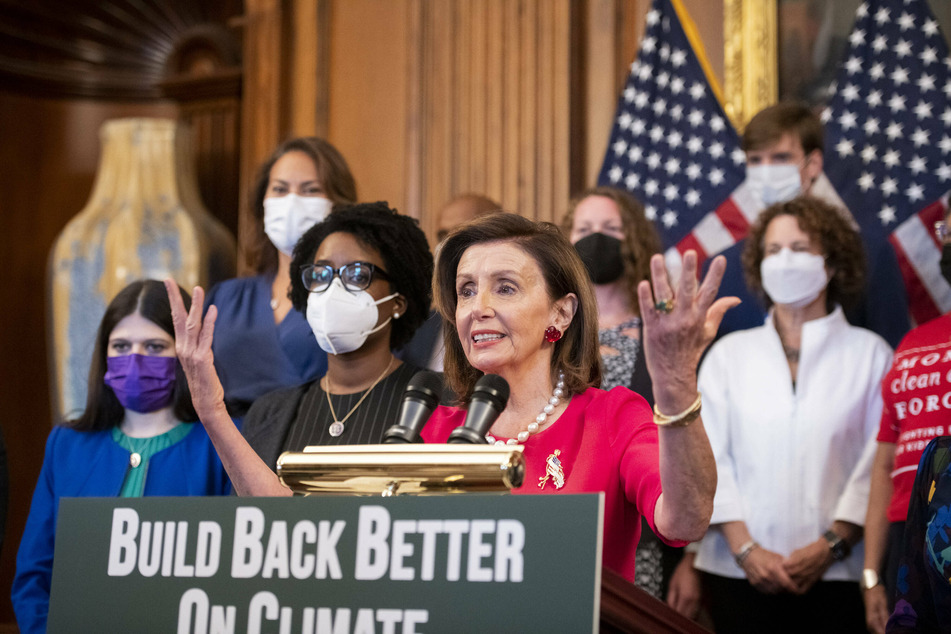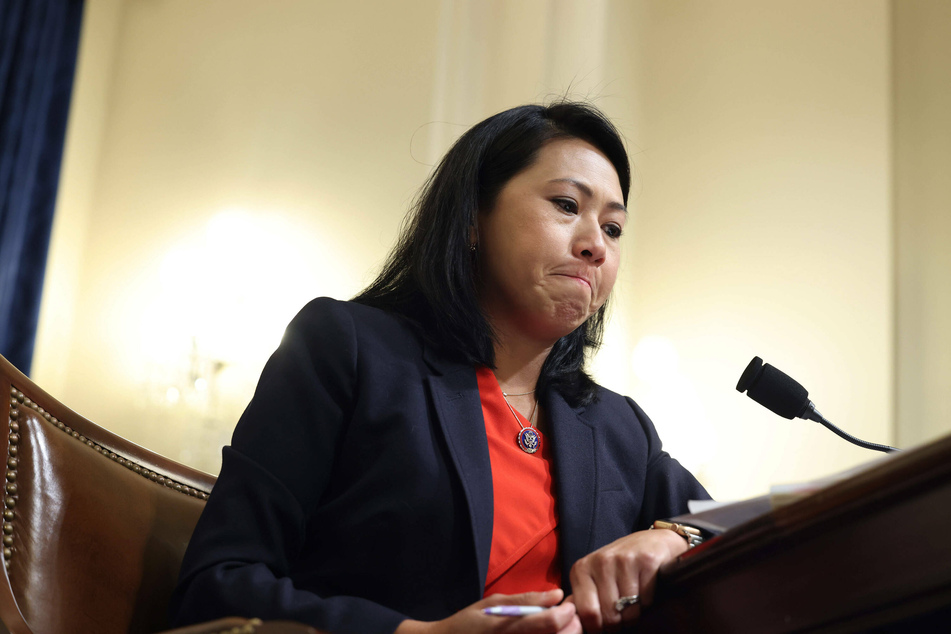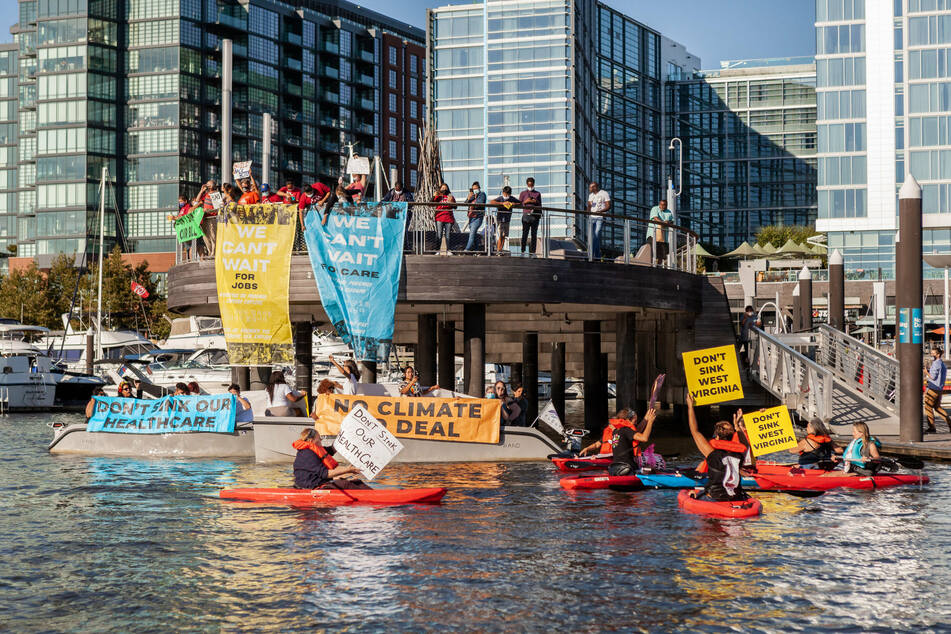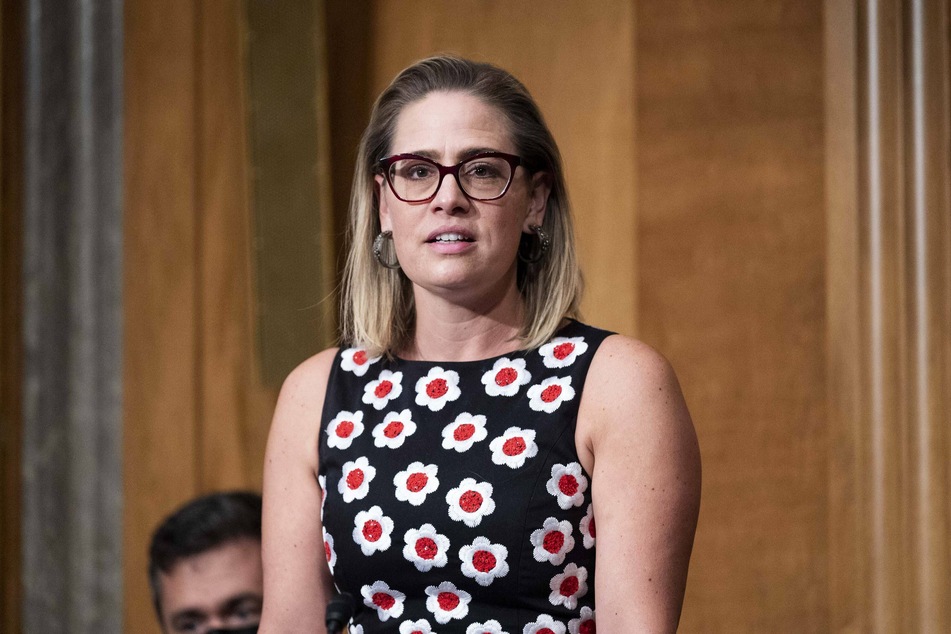House cancels vote on infrastructure bill as centrist Democrats refuse to budge
Washington DC - House Speaker Nancy Pelosi cancelled a vote late Thursday on President Joe Biden’s infrastructure bill, leaving a key part of his signature domestic agenda in limbo amid deep Democratic infighting.

Democrats plan to continue their work on Friday.
Pelosi had promised centrist Democrats the House would vote on the infrastructure plan Thursday regardless of whether work was complete on the second, larger portion of Biden’s agenda, a multi-trillion-dollar expansion of the nation’s social safety net programs.
She waged an all-day effort to curry votes on the approximately $1-trillion infrastructure plan and to reach a framework agreement on the size and scope of the safety-net bill.
White House domestic policy adviser Susan Rice and national economic adviser Brian Deese came to Capitol Hill to help negotiate an agreement between Democratic leaders and two centrist Democratic Senate holdouts. But those efforts ended at about 10 PM.
Pelosi’s record of tightly leading House Democrats was up against an unusual determination from progressives in her caucus to temporarily block the infrastructure bill in order to ensure the party lands a bigger fish: the social spending and climate legislation.
Both bills are part of Biden’s Build Back Better plan.
Progress still far away

As early as Thursday afternoon, Democrats said pulling the vote would not serve as a permanent defeat and that all parties would continue their work. Some even framed Thursday’s developments – centrist holdout Joe Manchin of West Virginia went public with his top-line figure after months of vagueness – as a sign of progress.
But the cancellation suggests substantial progress on either bill is still weeks or even months away.
"A lot is hanging in the balance – this whole agenda that President Biden has put forth," said Rep. Barbara Lee of California.
Moderates are likely to view the canceled vote as a broken promise. Earlier this week, Florida Rep. Stephanie Murphy, leader of a group of centrist Democrats, said doing so would amount to a "breach of trust."
Meanwhile, lawmakers took one item off their to-do list Thursday by voting to continue funding the government just hours before it would have run out of money.
Pelosi met with several groups of lawmakers Thursday to try to hatch agreement on several issues, including health care, climate change and the child tax credit.
"She’s been aggressively negotiating details of the (safety net bill) to try to close as many of those issues so that the progressives will feel more comfortable with voting" on infrastructure, according to one moderate Democrat, who described the internal negotiations on condition of anonymity.
The Democratic Party vs. Sinema and Manchin

Pelosi referred to the social spending bill – which is expected to contain a child tax credit and subsidies for prekindergarten and child care – as "the culmination of (her) service in Congress because it (is) about the children" – a comment that is likely to further fuel speculation on Capitol Hill that the bill could be the speaker’s final major piece of legislation. She said in 2018 that she would step down as speaker by the end of 2022.
To pass the infrastructure package, lawmakers will have to overcome the deep distrust between House Democrats and Manchin and his fellow centrist Senator Kyrsten Sinema of Arizona, who have indicated they will not support a $3.5-trillion price tag on the social safety net measure.
"This isn’t progressives versus moderates," California Rep. Ro Khanna tweeted. "This is the entire Democratic Party and Joe Biden versus Kyrsten Sinema."
Despite weeks of discussions about the bill, exactly what Manchin and Sinema want was unclear until Thursday.
Manchin said publicly for the first time that he would support a safety net package costing $1.5 trillion – about half as much as other Democrats had agreed to and an ominous sign for those who hope to curry his support.
Manchin signed an agreement, dated in July, with Majority Leader Chuck Schumer, stating he would support a top line of $1.5 trillion. The public release of the document was in some ways a sign of relief for members of his party, who finally knew where Manchin stood.
But it raised questions of why his position remained secret for so long as most Democrats coalesced around the $3.5-trillion price tag.
Centrists won't budge

"We only have 50 votes," Manchin said in response to House Democrats who say he and Sinema were not negotiating in good faith. "Take whatever we aren’t able to agree with today and take that on the campaign trail. I’m sure they’ll get many more liberal, progressive Democrats with what they say they want."
He said he opposes establishing new government programs that provide benefits to everyone regardless of income. "I cannot – and will not – support trillions in spending or an all-or-nothing approach that ignores the brutal fiscal reality our nation faces," he wrote in a statement.
Sinema’s office said in a statement that she had privately communicated her "detailed concerns and priorities" with Biden and congressional leaders, and that she "does not negotiate through the press."
The reality of a 50-50 split Senate provided additional motivation to Democrats.
"We can’t delay these things," Senate Majority Whip Richard J. Durbin of Illinois said on CNN. "Simply delaying them is just inviting a bad result... We’re one heartbeat away from losing the majority in the United States Senate."
It is not yet clear how Democrats might scale back their social safety net bill. They could cut whole programs or could give each of them a substantial haircut, by reducing the number of years they would be in effect or by limiting them based on income.
An ambitious plan to require pharmaceutical companies to negotiate drug prices in Medicare – a longtime Democratic campaign promise that would unleash hundreds of billions of dollars in savings to go to other health programs – will likely be cut or scaled back, according to several Democrats.
The party’s success in the 2022 midterm election may hinge on whether they have made progress on their campaign promises.
New Jersey Rep. Tom Malinowski said his constituents won’t get bogged down in short-term delays in Congress, but will care about what’s included in the final product. In particular, he pointed to affordable child care and a restoration of the state and local tax deductions that were capped during the Trump administration.
"If we end this process having achieved those things, I’m going to win reelection," he said.
Cover photo: IMAGO / MediaPunch

